The Latvian Judicial Training Center hosted the first semi-final of this year’s THEMIS Competition, between 12 and 14 April 2016. The subject of the competition was international cooperation in criminal matters.
Over 3 days, 8 teams from 7 EU Member States (Austria, Bulgaria, France, Hungary, Italy, Portugal, Romania) presented their written papers, debated legal issues with fellow team members and faced the challenging questions of the jury.
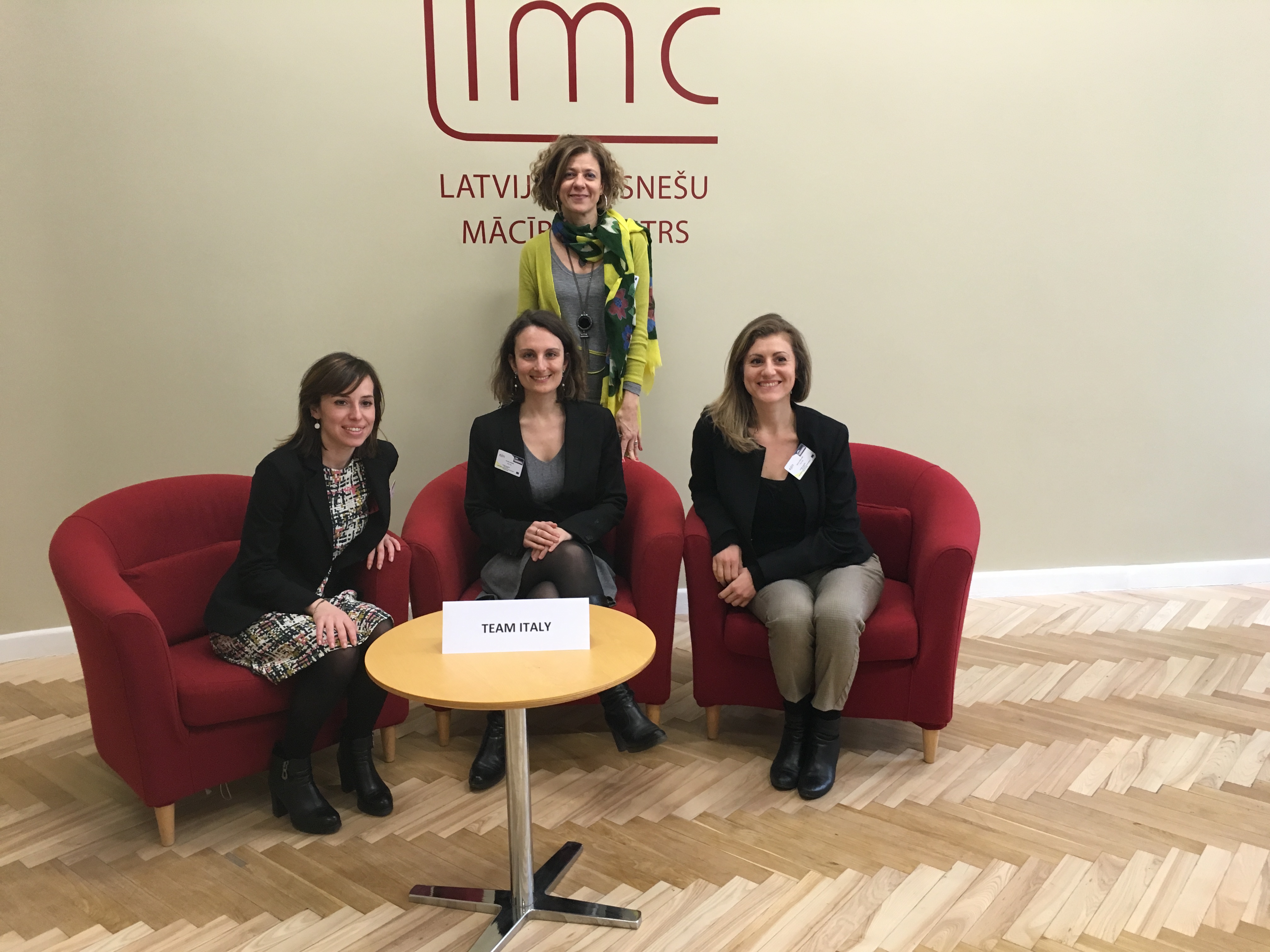
Team Italy |

Team Portugal |

Team Bulgaria |
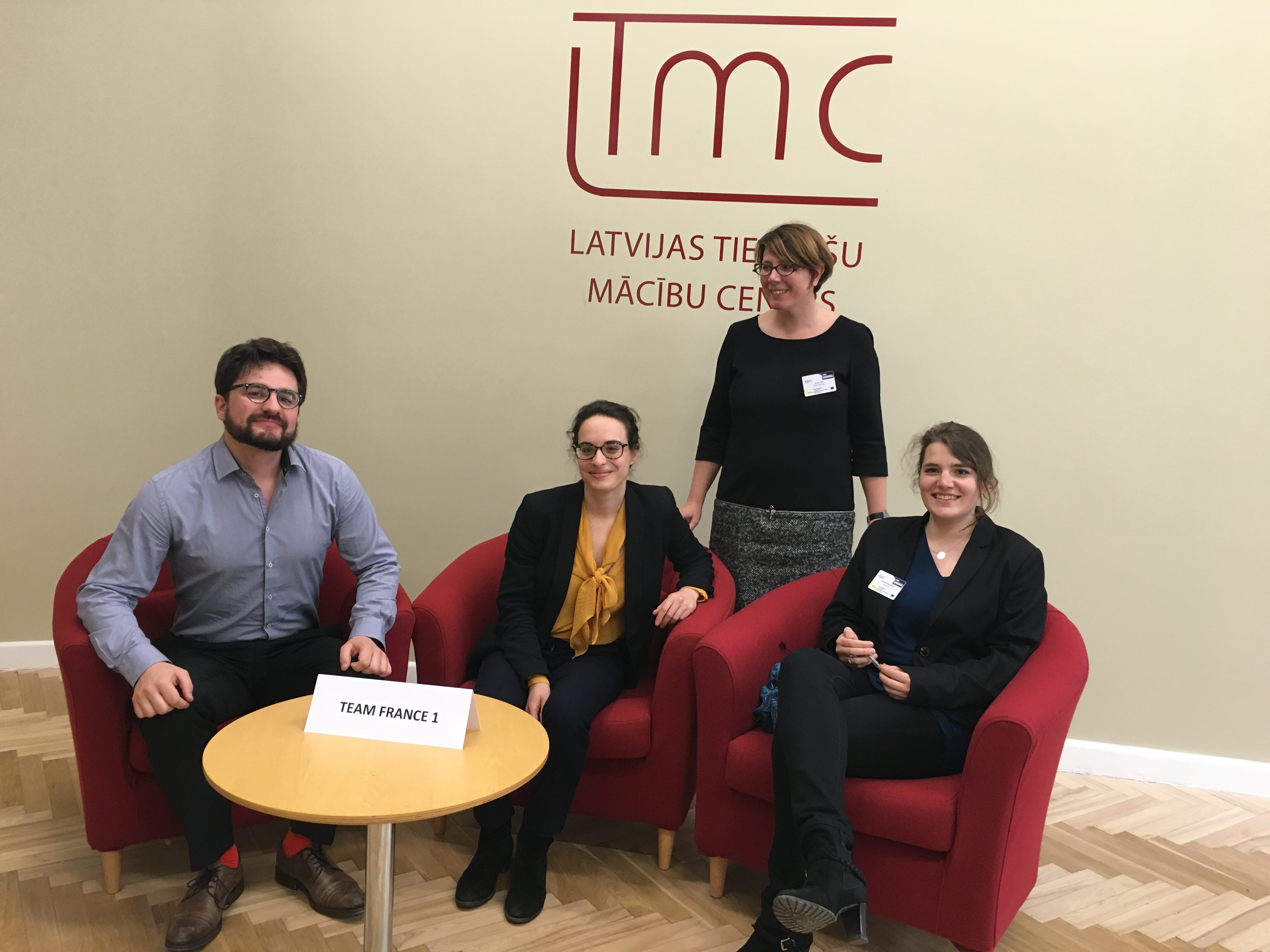
Team France 1 |
.JPG)
Team Hungary |
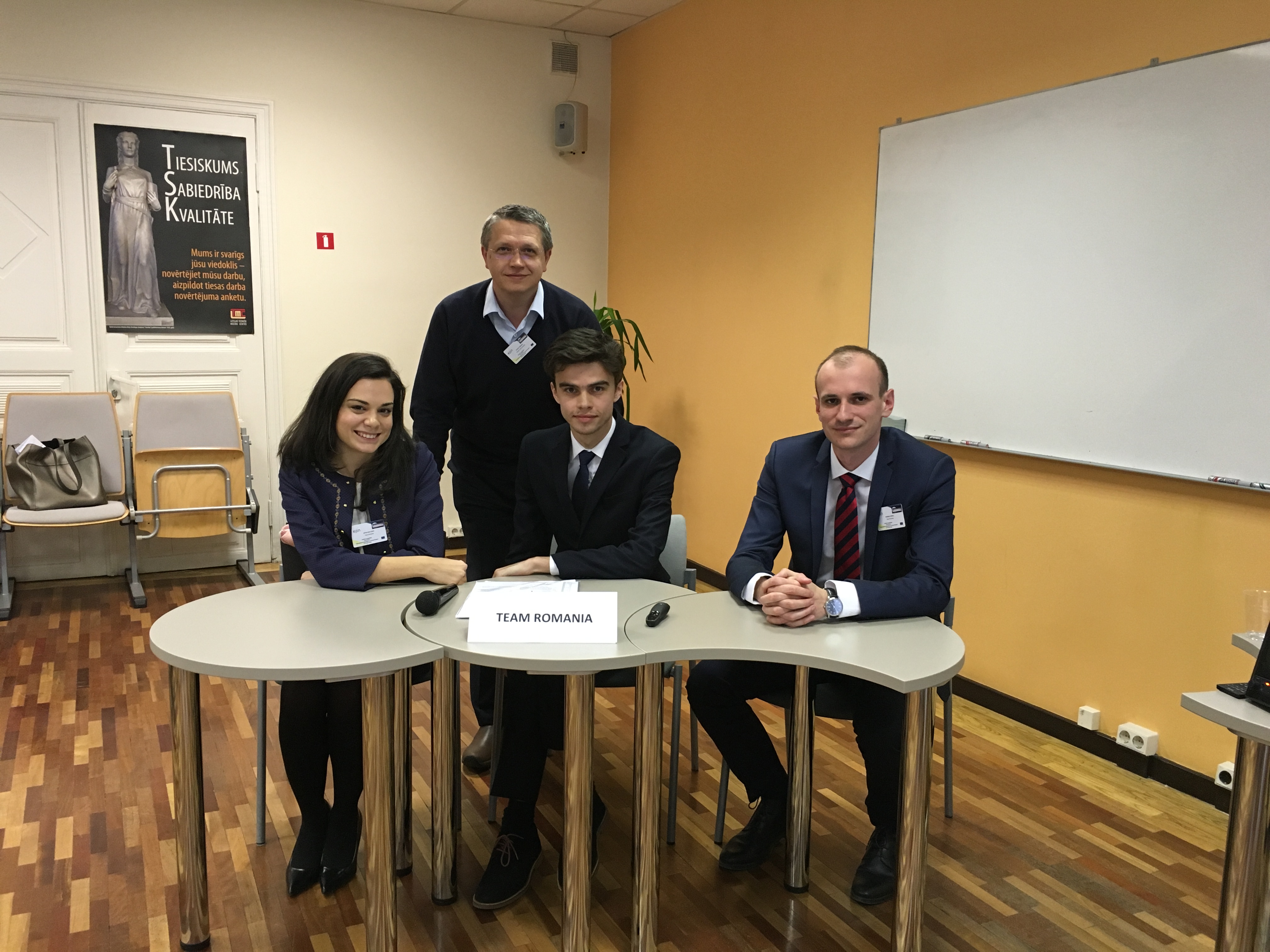
Team Romania |
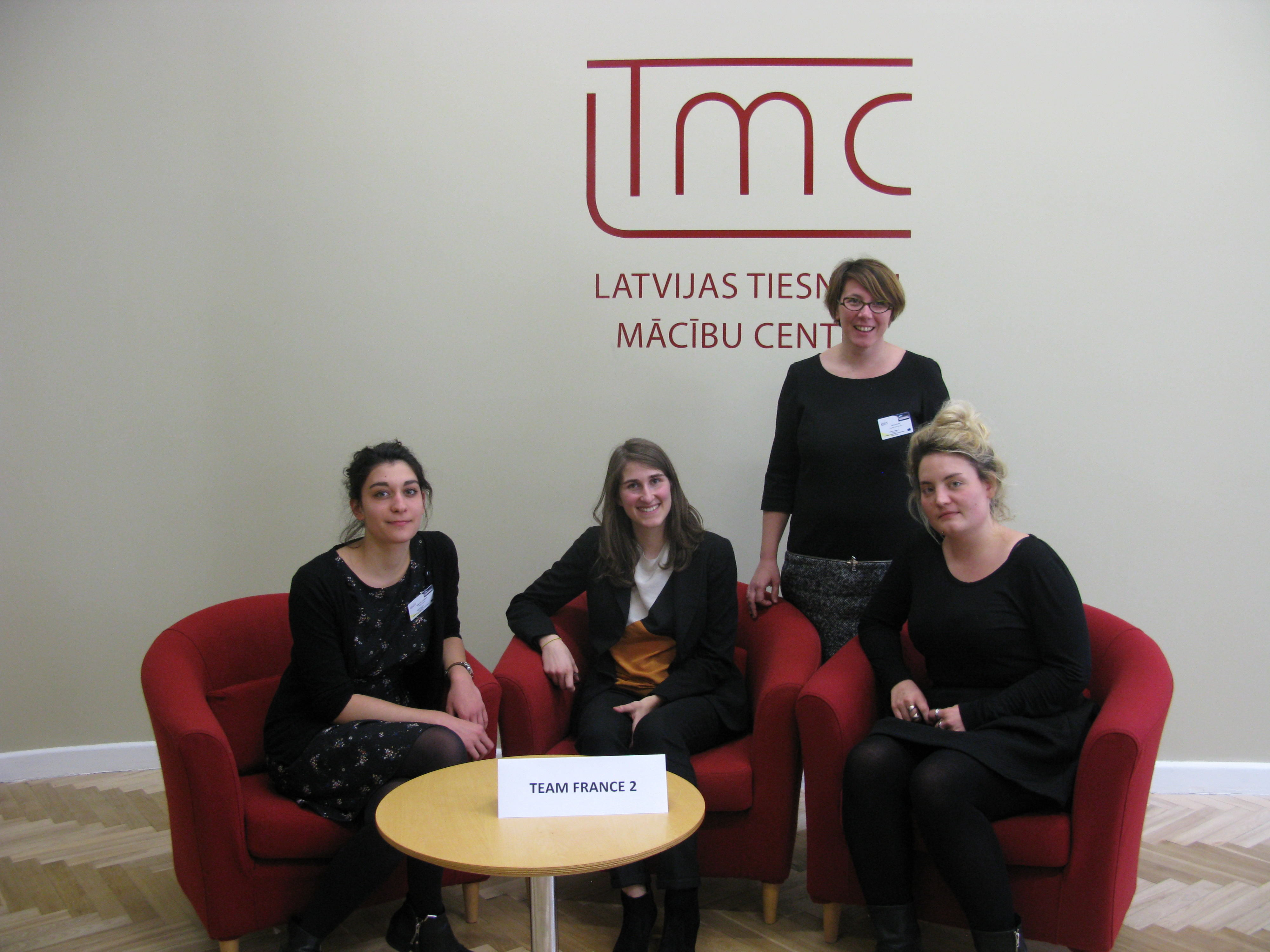
Team France 2 |
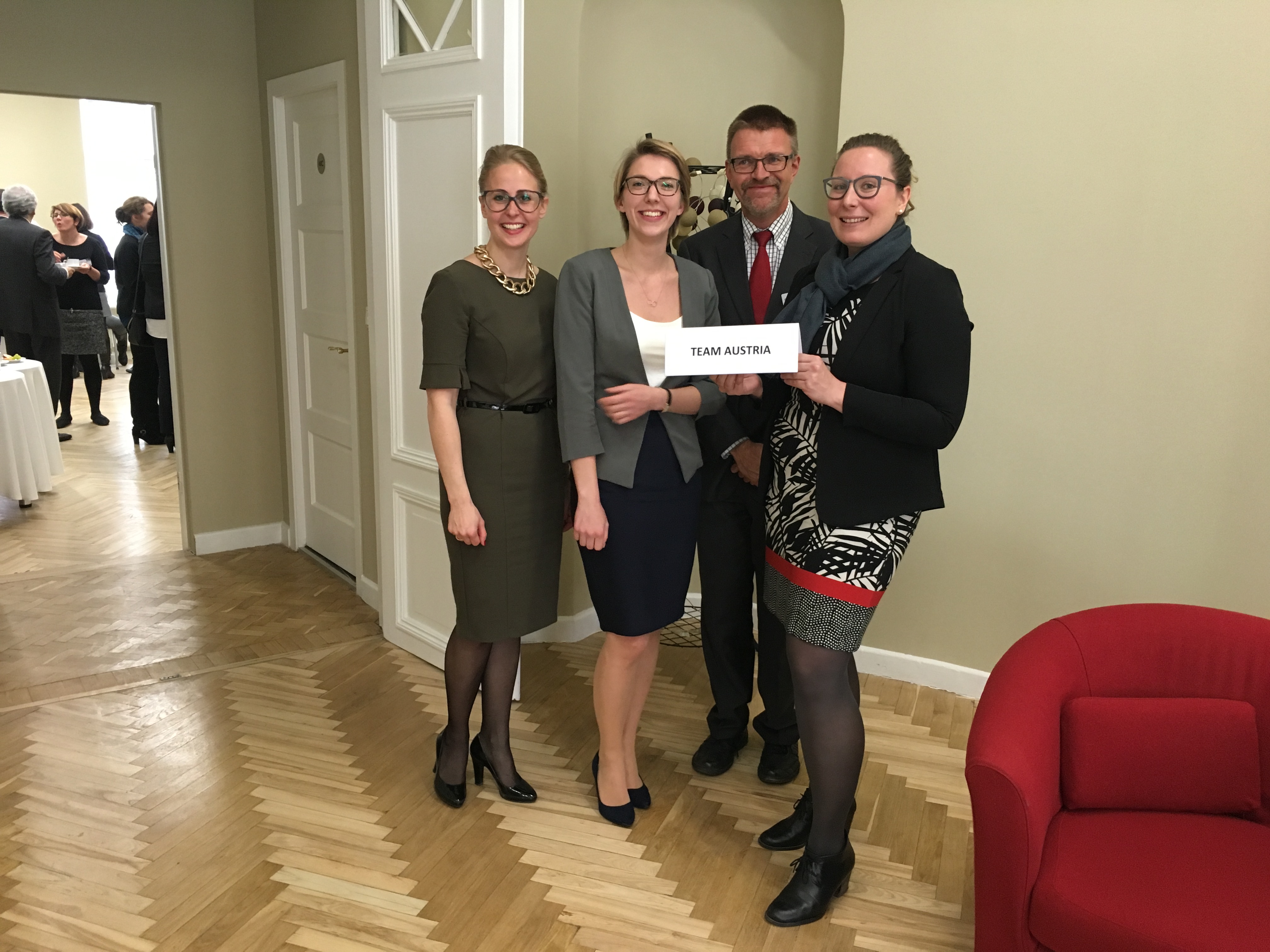
Team Austria |
|
Wide range of topics
The teams addressed a wide range of topics, which included trafficking of human beings, identity theft, asset freezing measures in the fight against terrorism, tax fraud in the EU, foreign fighters, the European Arrest Warrant, confiscation according to Directive 2014/42/EU and the dysfunctions of cooperation in criminal matters.
EJTN had the honour of having distinguished members of the jury to assess the competing teams: Dr. Stephan Haberland from Germany, Judge, Head of Panel, Regional Court of Appeal in Bremen; Dr. Tomasz Ostropolski from Poland, Head of Unit within the Polish Ministry of Justice, Department of Criminal Law; and, Ms. Jūlija Muraru-Kļučica from Latvia, Legal adviser within the Department of Judicial Cooperation, Latvian Ministry of Justice and Lecturer for the Latvian Judicial Training Centre.
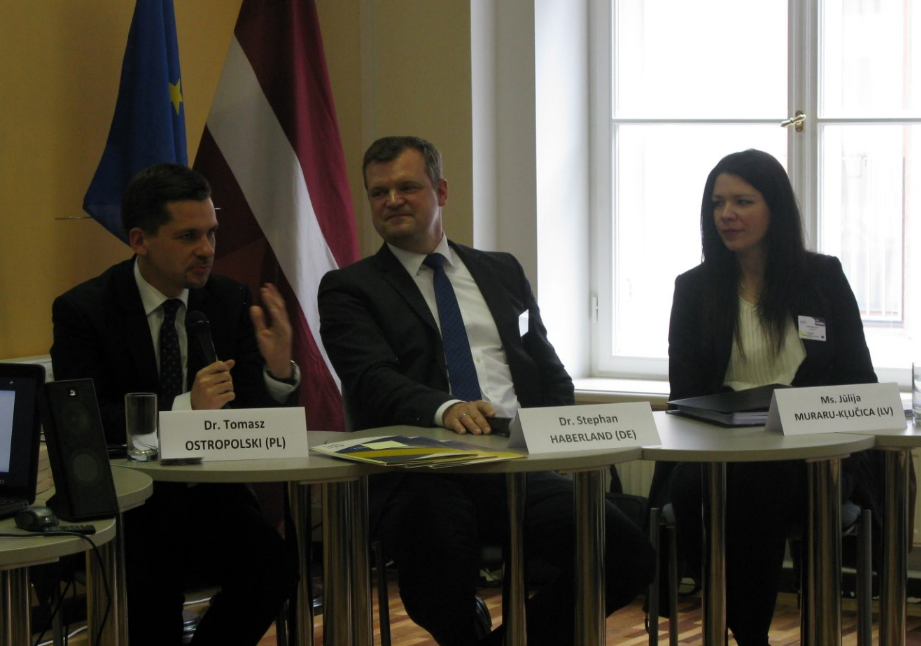
The jury members
The jury members assessed not only the overall quality and the originality, the critical thinking and the anticipation of future solutions, the reference to relevant case law, but also the communication skills and the consistency. They had the difficult task of assessing and ranking the 8 teams in order to decide the two finalists for the Grand Final, which will be held in Bordeaux, France.
Congratulations Team Austria!
First place was awarded to Team Austria (Ms. Verena Latzer, Ms. Katharina Steininger, Ms. Theresa Michlits and tutor Mr. Johannes Martetschlaeger), which gave an outstanding presentation performance on smuggling in human beings, presenting a real-life case of coordination, cooperation and communication between EU Member States. Second place was awarded to Team France 2 (Ms. Anne-Gaelle Martin, Ms. Julie Fraudeau and Ms. Camille Allain), which had a very analytic paper on tax fraud within the EU and responded very well to the questions of the jury members.
Both teams have secured a spot at the Grand Finals to be held in Bordeaux, France.
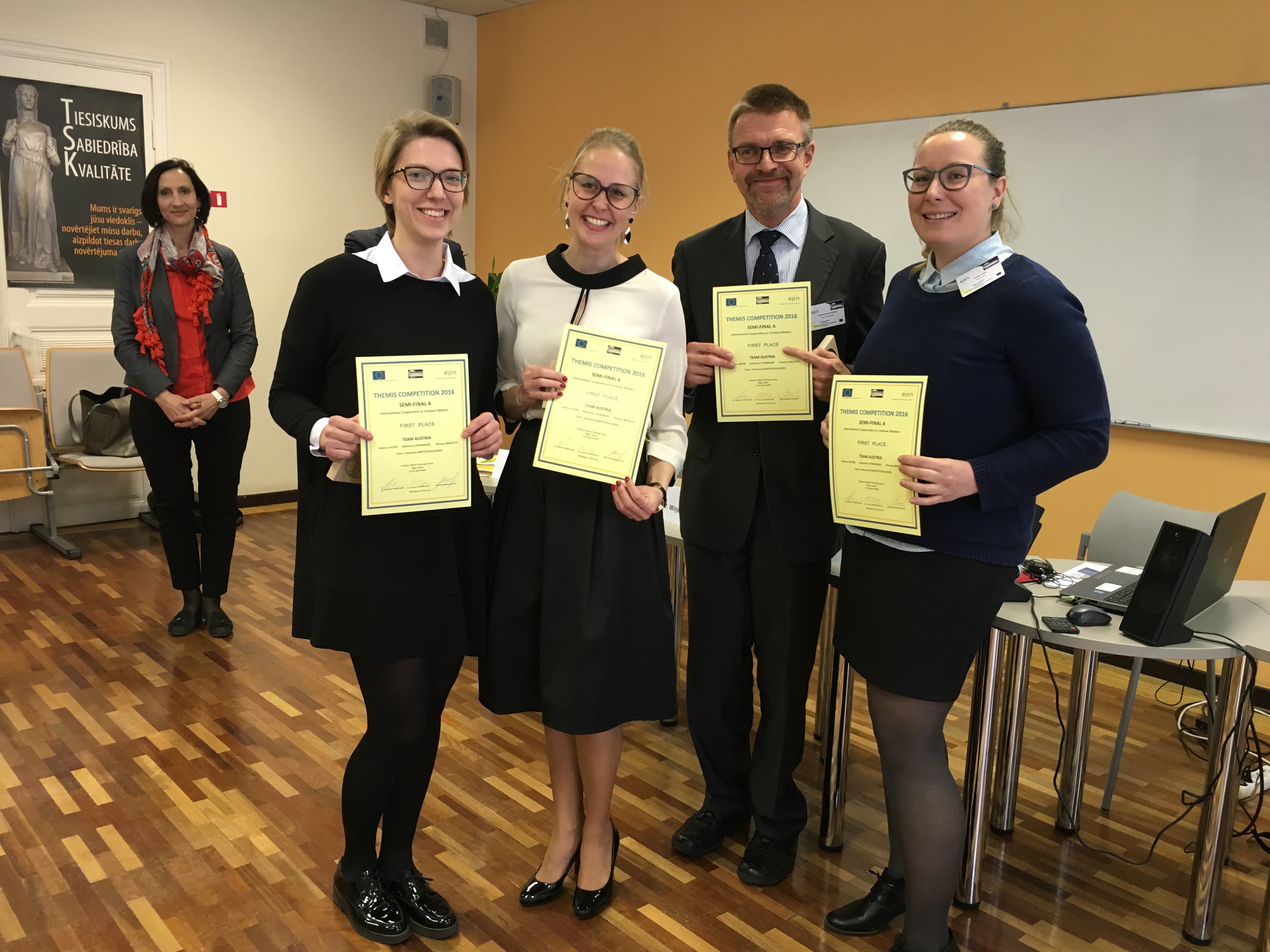
Team Austria - first place |
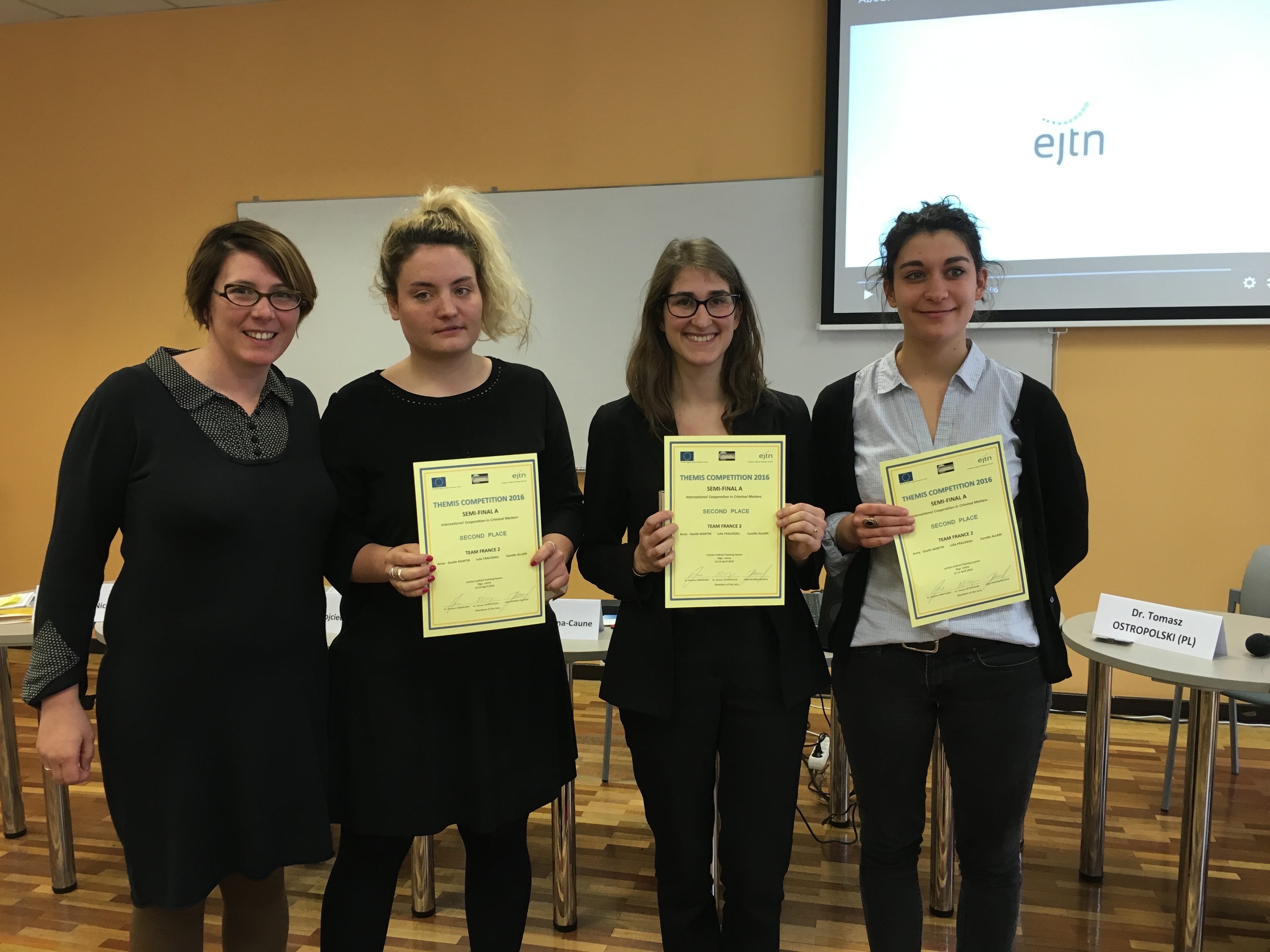
Team France 2 - second place |
The jurors expressed their sincere thanks to all the participating teams for the very high quality of their written papers and outstanding presentations. All participants received a certificate of participation.
Throughout its long 11-year history, the THEMIS Competition has been helping future European magistrates to exchange views and experiences and improve their presentation and language skills. Most importantly, the Competition offers them the opportunity enhance personal and career contacts and to familiarise themselves with different approaches to the same legal topic, creating a space for improving mutual trust in other European legal systems.
What experiences did the teams partaking in this Riga first semi-final round pick up?
“Participating in the THEMIS Competition has been a true gain on multiple levels. Not only have we intensified our knowledge in international cooperation in criminal matters but we have also really enjoyed the intercultural exchange and the great professional input by all the other teams. Thanks to EJTN for this great European experience,” said Verena Latzer, Team Austria, winner in the first place team.
Commitment and greater understanding
Gabriella Cappello, trainer of the team Italy, gave her views on the importance of the THEMIS Competition. “As I have personally experienced over the last two years, as the trainer of two teams of Italian competitors, most of the trainees involved seem to be perfectly aware of the very spirit of the event, focusing their commitment not only on the Competition, but also in knowing each other, spending time together and comparing their experiences in their own countries. I find it heartening as it demonstrates that the national training institutions are working in the right direction, within the scope of the Competition, making efforts for its implementation. Thank you very much.”
EJTN wishes to thank the hosting institution for the assistance and support in organising this semi-final, and especially to Mrs. Solvita Kalnina-Caune, Director of the Latvian Judicial Training Centre Foundation, for her warm welcoming words and the presentation of the Latvian judicial system.
EJTN is the proud organiser of the annual THEMIS Competition, and is grateful for the financial support of the European Commission’s Justice Programme.
Written papers
- Team Austria - Smuggling in Human Beings, Coordination – Cooperation – Communication Austria – Hungary – Bulgaria, A Real-Life Case at the Heart of Europe
- Team Bulgaria - Identity Theft: A Growing Threat, Challenges, Posed by Identity Theft as a Step Towards Terrorism
- Team France 1 - Asset Freeze Measures in the Fight against Terrorism
- Team France 2 - Facing tax fraud in the European Union, Challenges and perspectives
- Team Hungary - Sovereignty vs. Efficient Crime-Fighting, The Dysfunctions of Cooperation in Criminal Matters
- Team Italy - Foreign fighters: a new challenge for the EU counterterrorism strategy
- Team Portugal - The European Arrest Warrant: Between the Practice and the Principles
- Team Romania - Confiscation according to Directive 2014/42/EU
Read more about THEMIS on the THEMIS project page.
About THEMIS
The main aim of the THEMIS project is to bring together future magistrates from different European countries at a time when they are undergoing entry level training to enable them to share common values and to exchange new experiences and discuss new perspectives in areas of common interest.
The project also aims to develop abilities related to the future profession of the participants, such as communication skills, debating abilities, critical and analytical thinking, logical reasoning and proper legal writing. Furthermore, THEMIS is intended to foster the development of professional contacts, experiences and relationships between both the entry-level trainees in magistracy and their teaching staff.